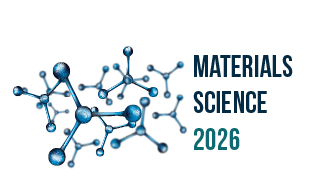3rd Global Event on
Materials Science and Engineering
October 29-30, 2026 | Berlin, Germany

Address: Hans-Grade-Allee 5, 12529 Schonefeld b. Berlin, Germany
Materials Science 2026

Gujarat Arts & Science College, India
Abstract:
The study investigates the effects of elastic deformation in a porous, rough, short bearing lubricated by a ferrofluid, incorporating viscosity variation. It employs Rosenzweig's viscosity expression to evaluate how changes in viscosity impact the system and uses the Neuringer-Rosensweig model (NRM) to describe magnetic fluid flow. An averaged stochastic modified Reynolds equation has been developed to determine pressure distribution based on parameters such as elastic deformation, viscosity variation, porosity, and aspect ratio, followed by load calculation. The analysis of Load Carrying Capacity (LCC) is presented graphically, considering different bearing parameters. The findings suggest that increasing magnetization and viscosity variation can enhance the LCC if the aspect ratio is appropriately selected. Conversely, LCC decreases with higher elastic deformation, roughness, and porosity. The combined effects of porosity, transverse roughness, and deformation further reduce load-bearing capacity. However, viscosity variation can partially mitigate these reductions, especially when deformation is minimal.
Biography:
Rakesh Manilal Patel is a distinguished academician and researcher in the field of Mathematics, currently serving in the Department of Mathematics, Gujarat Arts & Science College, Ellis Bridge, Ahmedabad, Gujarat, India. With a strong commitment to teaching, research, and scholarly excellence, Dr. Patel has contributed significantly to mathematical sciences through his academic work, publications, and mentorship of students. His areas of interest encompass various branches of pure and applied mathematics, and he actively engages in promoting mathematical education and innovation at both undergraduate and postgraduate levels.
